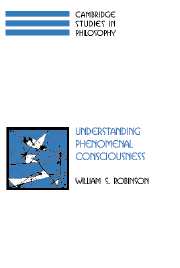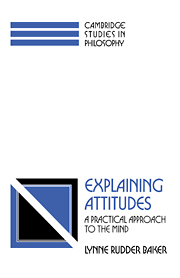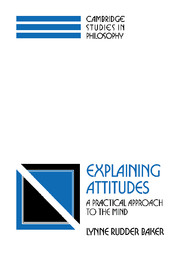Understanding Phenomenal Consciousness
Focusing on sensory experience and perception qualities to present a dualistic view of the mind (called Qualitative Event Realism), this book doesn't conform to the dominant materialist views. Its theory is relevant to the development of a science of consciousness now being pursued, not only by philosophers, but by researchers in psychology and the neurosciences.
- Strong interdisciplinary appeal in psychology and brain sciences
- Presents a dualist view against the prevailing materialist view of the mind
Reviews & endorsements
"This book is almost certainly the most complete and up-to-date defense of dualism in the contemporary literature. Robinson takes on nearly all the philosophical accounts of phenomenal qualities, and offers consistently tight arguments to conclude that dualism is the best of them. Robinson's exposition of the major positions in philosophy of mind is likely the single most accessible overview of the field for college students. This remarkable accomplishment owes much to the extraordinary clarity and brevity of his exposition and argumentation. Part 1 could be used as a companion to courses in philosophy of mind, and as a guide to major literature in the field for graduate students and professionals alike. Essential."
--S.W. Horst, Wesleyan University, CHOICE
"...Robinson's book is a highly impressive and forceful defense of a radical position in the philosophy of consciousness: epiphenomenalistic dualism...The clarity of the argumentation is outstanding...The writing is lively and fresh; the background desire to advance a novel account of consciousness lends a certain 'newness' to even well trodden philosophical paths. The book is packed with careful, interesting and intriguing arguments."
--William Seager, University of Toronto at Scarborough
Product details
March 2004Hardback
9780521834636
278 pages
229 × 152 × 19 mm
0.533kg
Available
Table of Contents
- Part I:
- 1. Introduction
- 2. Qualitative event realism
- 3. Dualism
- 4. Representationalism
- 5. Transparency
- 6. Higher order theories
- 7. Monitoring
- 8. Functionalism
- 9. Scepticism and the causes of qualitative events
- 10. Epiphenomenalism
- Part II:
- 11. Unified dualism
- 12. Patterns as causes of qualitative events
- 13. A possible future.







